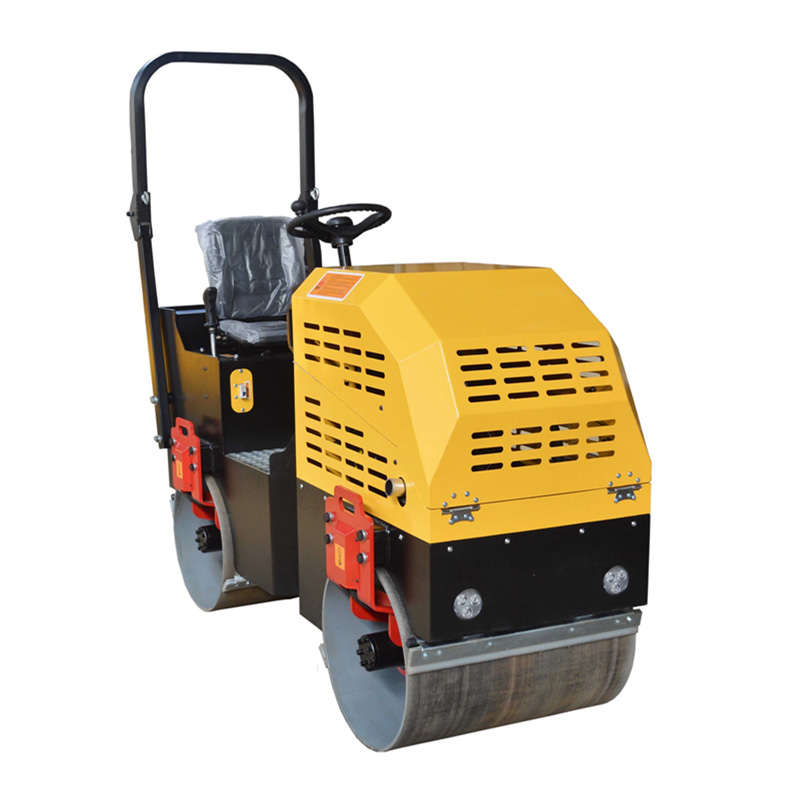Wholesale 1T Walk-behind Double Drum Roller
Roller Drum: At the heart of the road roller lies the roller drum, typically crafted from sturdy steel. This component makes direct contact with the surface being compacted. The design and dimensions of the roller drum can vary, with some featuring smooth drums for asphalt compaction and others equipped with padfoot drums designed for soil compaction.
- 1T
- ZHUOXIN
- Walk-behind Double Drum Roller
- shandong.china
- TT, Paypal, Credit card, Western union
- +86-15163766288
- Engine: Road rollers are equipped with powerful engines that deliver the necessary horsepower for propelling the machine and operating the roller drum. Diesel engines are often favored for their high torque and reliability.
Description

The road roller, often called a compactor or steamroller, stands as a marvel of engineering in the realm of heavy-duty construction machinery. This robust and versatile machine finds its primary use in compacting a wide array of surfaces, with a primary focus on roads and pavements. Its significance in ensuring the durability and smoothness of road surfaces makes it an indispensable asset in contemporary construction and infrastructure development projects.
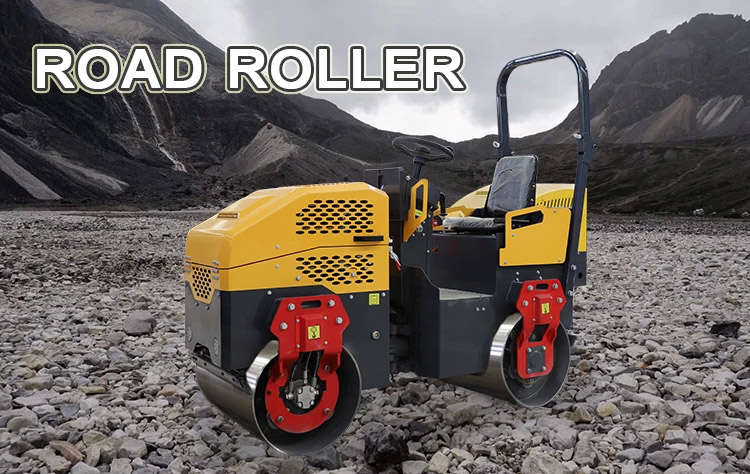
Key Components:
A typical road roller comprises several key components, each contributing to its efficiency and functionality:
Roller Drum: At the heart of the road roller lies the roller drum, typically crafted from sturdy steel. This component makes direct contact with the surface being compacted. The design and dimensions of the roller drum can vary, with some featuring smooth drums for asphalt compaction and others equipped with padfoot drums designed for soil compaction.

Engine: Road rollers are equipped with powerful engines that deliver the necessary horsepower for propelling the machine and operating the roller drum. Diesel engines are often favored for their high torque and reliability.
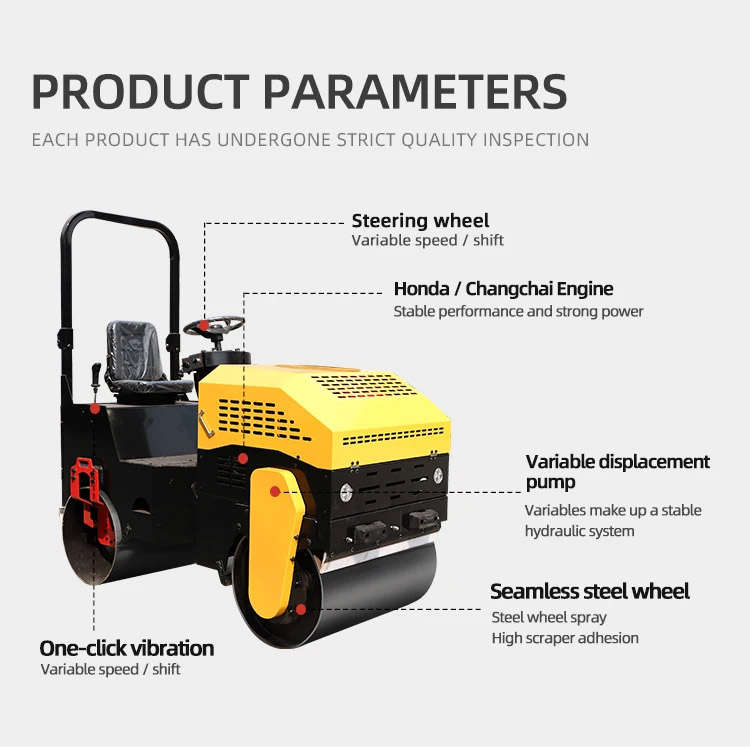
Cabin: The operator's cabin serves as the control center for the roller. It offers a comfortable seating arrangement, controls for steering, speed modulation, and drum vibration adjustment. Safety features like roll-over protection structures (ROPS) and seat belts are integral components of the cabin.
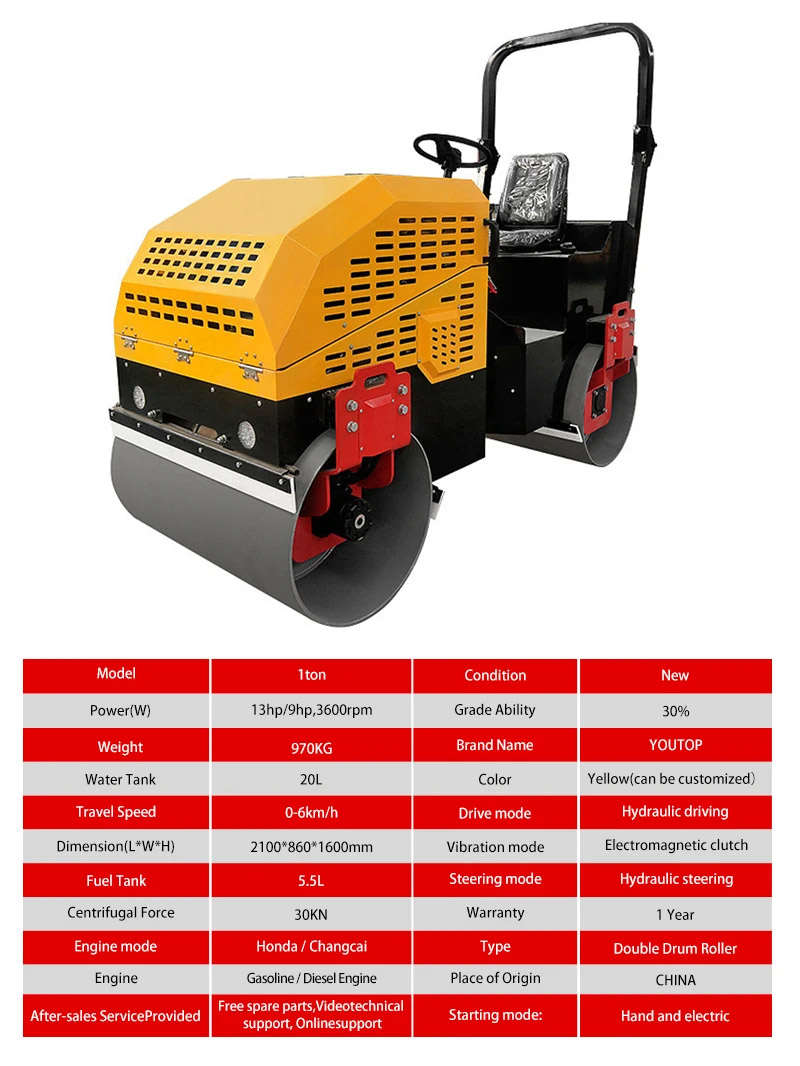
Vibratory System: Many modern road rollers are equipped with a vibratory system, allowing the roller drum to oscillate or vibrate. This feature significantly enhances compaction efficiency by reducing air voids within the material being compacted.
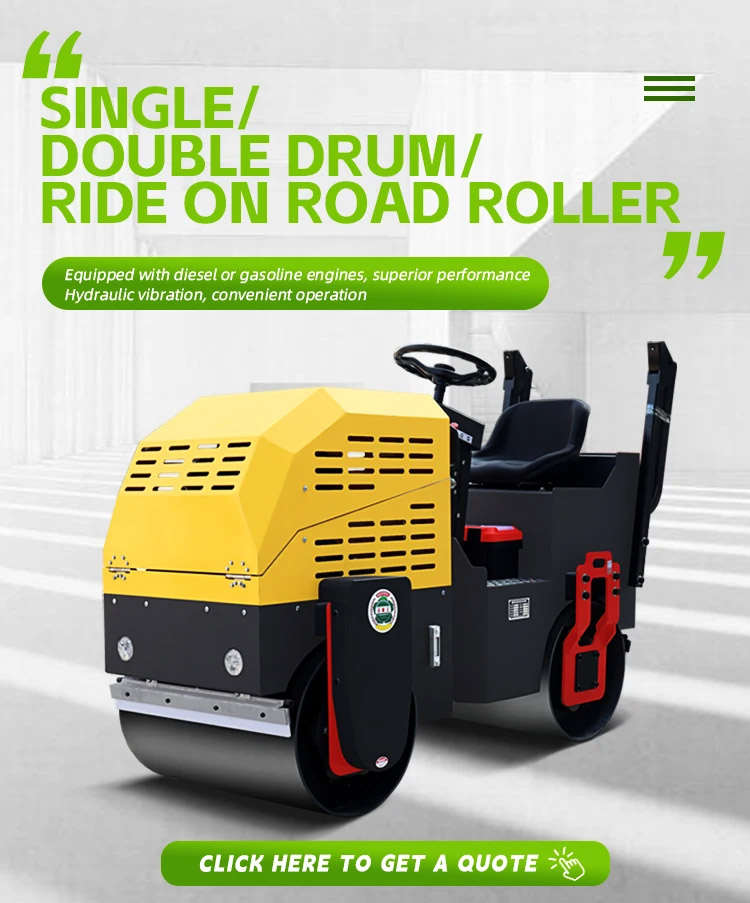
Water Spray System: To prevent asphalt from adhering to the roller drum and to control dust during soil compaction, road rollers are often equipped with a water spray system that wets the drum.
Sheepsfoot Rollers: These rollers are equipped with padfoot drums featuring protruding lugs, making them exceptional for compacting cohesive soils.
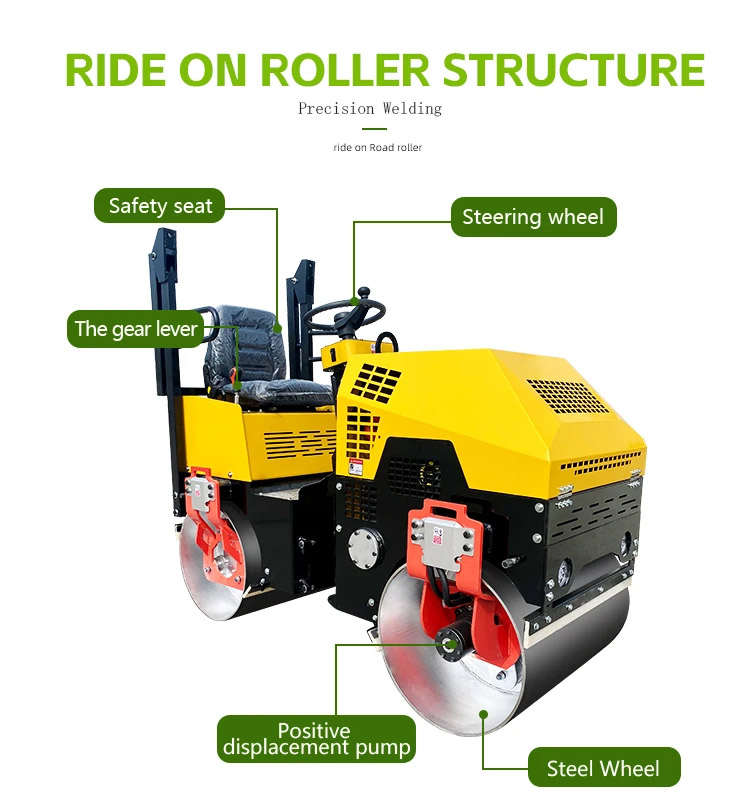
Operation:
Operating a road roller requires skilled personnel well-versed in the principles of compaction. The operator maneuvers the machine across the designated area, adjusting the drum's vibration frequency and amplitude as necessary. The roller's sheer weight, combined with the vibrating action, compresses the material, diminishing voids and ensuring a solid, even surface.
The road roller, often called a compactor or steamroller, stands as a marvel of engineering in the realm of heavy-duty construction machinery. This robust and versatile machine finds its primary use in compacting a wide array of surfaces, with a primary focus on roads and pavements. Its significance in ensuring the durability and smoothness of road surfaces makes it an indispensable asset in contemporary construction and infrastructure development projects.
Key Components:
A typical road roller comprises several key components, each contributing to its efficiency and functionality:
Roller Drum: At the heart of the road roller lies the roller drum, typically crafted from sturdy steel. This component makes direct contact with the surface being compacted. The design and dimensions of the roller drum can vary, with some featuring smooth drums for asphalt compaction and others equipped with padfoot drums designed for soil compaction.

Key Components:
A typical road roller comprises several key components, each contributing to its efficiency and functionality:
Roller Drum: At the heart of the road roller lies the roller drum, typically crafted from sturdy steel. This component makes direct contact with the surface being compacted. The design and dimensions of the roller drum can vary, with some featuring smooth drums for asphalt compaction and others equipped with padfoot drums designed for soil compaction.

Engine: Road rollers are equipped with powerful engines that deliver the necessary horsepower for propelling the machine and operating the roller drum. Diesel engines are often favored for their high torque and reliability.

Cabin: The operator's cabin serves as the control center for the roller. It offers a comfortable seating arrangement, controls for steering, speed modulation, and drum vibration adjustment. Safety features like roll-over protection structures (ROPS) and seat belts are integral components of the cabin.

Vibratory System: Many modern road rollers are equipped with a vibratory system, allowing the roller drum to oscillate or vibrate. This feature significantly enhances compaction efficiency by reducing air voids within the material being compacted.

Water Spray System: To prevent asphalt from adhering to the roller drum and to control dust during soil compaction, road rollers are often equipped with a water spray system that wets the drum.
Sheepsfoot Rollers: These rollers are equipped with padfoot drums featuring protruding lugs, making them exceptional for compacting cohesive soils.

Operation:
Operating a road roller requires skilled personnel well-versed in the principles of compaction. The operator maneuvers the machine across the designated area, adjusting the drum's vibration frequency and amplitude as necessary. The roller's sheer weight, combined with the vibrating action, compresses the material, diminishing voids and ensuring a solid, even surface.
The road roller, often called a compactor or steamroller, stands as a marvel of engineering in the realm of heavy-duty construction machinery. This robust and versatile machine finds its primary use in compacting a wide array of surfaces, with a primary focus on roads and pavements. Its significance in ensuring the durability and smoothness of road surfaces makes it an indispensable asset in contemporary construction and infrastructure development projects.
Key Components:
A typical road roller comprises several key components, each contributing to its efficiency and functionality:
Roller Drum: At the heart of the road roller lies the roller drum, typically crafted from sturdy steel. This component makes direct contact with the surface being compacted. The design and dimensions of the roller drum can vary, with some featuring smooth drums for asphalt compaction and others equipped with padfoot drums designed for soil compaction.
Tags
Get the latest price? We'll respond as soon as possible(within 12 hours)






















